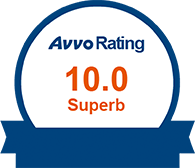
Miami Child Abuse Attorney
Child abuse is a serious and unfortunately common form of domestic violence in the state of Florida. According to the National Child Abuse and Neglect Data System, there were over 250,000 reports of child abuse in 2021 alone. In Florida, child abuse is a serious criminal offense that can result in significant penalties. A skilled defense attorney can help you fight these charges and work to achieve the best possible outcome for your case. Whether you are facing charges of physical abuse, sexual abuse, or neglect, our Miami Child Abuse Attorneys can help provide you with the guidance and support you need to protect your future and your freedom.
What Is Child Abuse?
Under Florida statute § 827.03(b), the crime of child abuse is defined as “intentional infliction of physical or mental injury upon a child or an intentional act that could reasonably be expected to result in physical or mental injury to a child.” This crime can be committed against any child under the age of 18. In Florida, child abuse is a criminal offense that can take many different forms. Child abuse can involve physical abuse, sexual abuse, emotional abuse, or neglect.
Physical abuse can include hitting, kicking, shaking, or any other action that causes physical harm to a child. Sexual abuse can involve any sexual activity with a child, including touching, exposure, or penetration. Emotional abuse can include verbal abuse, threats, or other behavior that causes emotional harm to a child. Neglect can involve failing to provide a child with proper care, such as food, shelter, medical care, or supervision.
Under Florida law, child abuse is a felony offense that can result in significant penalties, including fines, probation, and imprisonment. The severity of the penalties will depend on the specific circumstances of the case, including the age of the child, the type of abuse involved, and the extent of the harm caused.
Types of Abuse
- Physical Abuse: Any intentional act that causes physical harm or injury to a child, such as hitting, kicking, punching, slapping, burning, or otherwise harming a child's body. Physical abuse can also involve the use of weapons or other objects to cause harm to a child. There is a non-exhaustive list of physical abuse but any type of harm is considered abuse if it is intentional and causes harm to a child.
- Sexual Abuse: Any sexual activity with an adult and a child under the age of 18, including sexual contact, sexual assault, and sexual exploitation. Sexual abuse can take many forms, including rape, molestation, incest, or exposure to pornography. Sexual abuse can have serious long-term psychological consequences for the child, including depression, anxiety, and PTSD.
- Emotional Abuse: Any intentional infliction of emotional or mental harm on a child such as the use of words or actions to undermine a child's self-esteem and confidence. Emotional abuse can take many forms, including name-calling, belittling, humiliation, threats, intimidation, rejection, and isolation. Emotional abuse can have serious long-term consequences for a child's mental health and well-being.
Types of Neglect
Under Florida statute § 827.03(e)(1), neglect of a child is “a caregiver’s failure or omission to provide a child with the care, supervision, and services necessary to maintain the child’s physical and mental health.” There are several types of neglect, including but not limited to:
- Physical neglect: Failure to provide a child with adequate food, clothing, shelter, medical care, or supervision. Physical neglect can also occur when a child is abandoned or left alone for extended periods.
- Emotional neglect: Failure to provide a child with adequate emotional support, such as love, affection, and attention. Emotional neglect can also occur when a child is exposed to chronic family conflict or violence.
- Medical neglect: Failure to provide a child with necessary medical care, including preventive care, diagnostic testing, and treatment for medical conditions.
Elements of Child Abuse
To prove the crime of Child Abuse, the State of Florida would be required to prove the following two elements beyond a reasonable doubt:
- The Defendant knowingly or willfully abused the victim by one of the following means:
- Intentionally inflicting physical or mental injury upon the victim;
- Committing an intentional act that could reasonably be expected to result in physical or mental injury to the victim; or
- Actively encouraging another person to commit an act that resulted in or could reasonably have been expected to result in physical or mental injury to the victim.
2. The victim was under the age of 18 years.
In addition to the basic elements of Child Abuse, if the State can prove beyond a reasonable doubt that a Defendant engaged in any of the following acts, then the Defendant can be charged with Aggravated Child Abuse, increasing the charge from a third degree felony to a first degree felony:
- The Defendant committed an Aggravated Battery on the victim;
- The Defendant willfully tortured the victim;
- The Defendant maliciously punished the victim;
- The Defendant willfully and unlawfully caged the victim; or
- The Defendant knowingly or willfully committed Child Abuse upon the victim and, in doing so, caused great bodily harm, permanent disability, or permanent disfigurement to the victim.
As professional Miami criminal defense attorneys, we take every case personally give every client the deliberate care it deserves. Our clients become part of our family and we fight relentlessly for their rights. Read more about us to find out how we can help you.



Client Testimonials
-
She is very thorough and treats clients like family.
Sports Supernova -
So detailed and thorough with getting into the case
Kristina Radulovic -
"The moment I spoke to Hubbs (the attorney), I was hopeful. He cared to listen, was honest, gave me his humble opinion, listed possible outcomes, and most importantly, he told me to come in because he thought there was a fighting chance."Carlos G.










